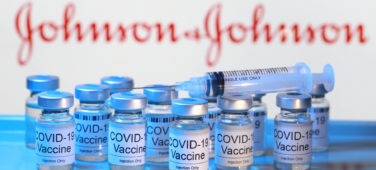Much has been said about how the COVID-19 pandemic has fostered, not hindered, human connection. Sheltering-in-place has forced us to shed our corporate selves and welcome coworkers into our homes via video conferences, glimpsing our real lives. The increase in human connection sparked by this new reality has awakened a new sense of empathy—and a dramatic demand for healthcare marketers to reimagine their role in people’s lives.
Patient marketing traditionally suffered from an unfortunate tendency of being a bit…impersonal, focused on things (medicine, treatments, etc.) not people. As a result, the health marketing community has long talked of a much-needed sea change, but COVID-19 has made the concept of increased empathy a mandate. Health marketers must connect to, relate with, and counsel patients on a truly human level, which they can achieve via three crucial tenants of empathy-first marketing:
1. Healthcare decision making is a partnership: While it’s true patients are more empowered than ever before, that can be a bit of a misnomer. People are by and large not making decisions about their health alone—technology provides them unprecedented access to a vast network of medical professionals. From private consultations via telemedicine with their own doctors to YouTube videos of “rockstars of health” dispensing invaluable information on a wide array of medical topics, consumers are looking to the experts to make decisions in collaboration with those who know best. That partnership on the most personal and pivotal of life’s decisions is an organic way to build long-lasting, meaningful, and empathetic connections with consumers.
2. Real-time relevance: We are now in the age of extraordinary expectations—people possess significantly less patience for delays and obstacles in getting what they want. This is especially true in healthcare, where patients anticipate the entire process—from seeking treatment, connecting to a medical professional, and obtaining a prescription—will take no more than 24 hours. By connecting with health consumers in real-time we can close the gaps in continuity of care and improve health outcomes.
3. Beyond-medicine solutions: The right to “sell medicine” is earned rather than immediately granted. It’s natural for people to be stressed when reaching out for medical treatment and/or advice, so it’s important to really understand the patient’s concerns. Yet, all too often, marketers go straight to the sales pitch. Even if the medical solution being offered will be helpful to the person, it’s important to present it as part of a holistic view of the person’s health journey—including mental, physical, social, and financial factors that go into the decision-making process. Healthcare marketers must truly connect with consumers in an empathetic way, and that requires taking off their sales hat and holding the patient’s hand as they navigate the complexities of their full health profile.
People are understandably more fearful, anxious, and panicked in the current pandemic. Brands that offer an empathetic, guiding hand when patients need it most will generate the post-pandemic ties that bind.










